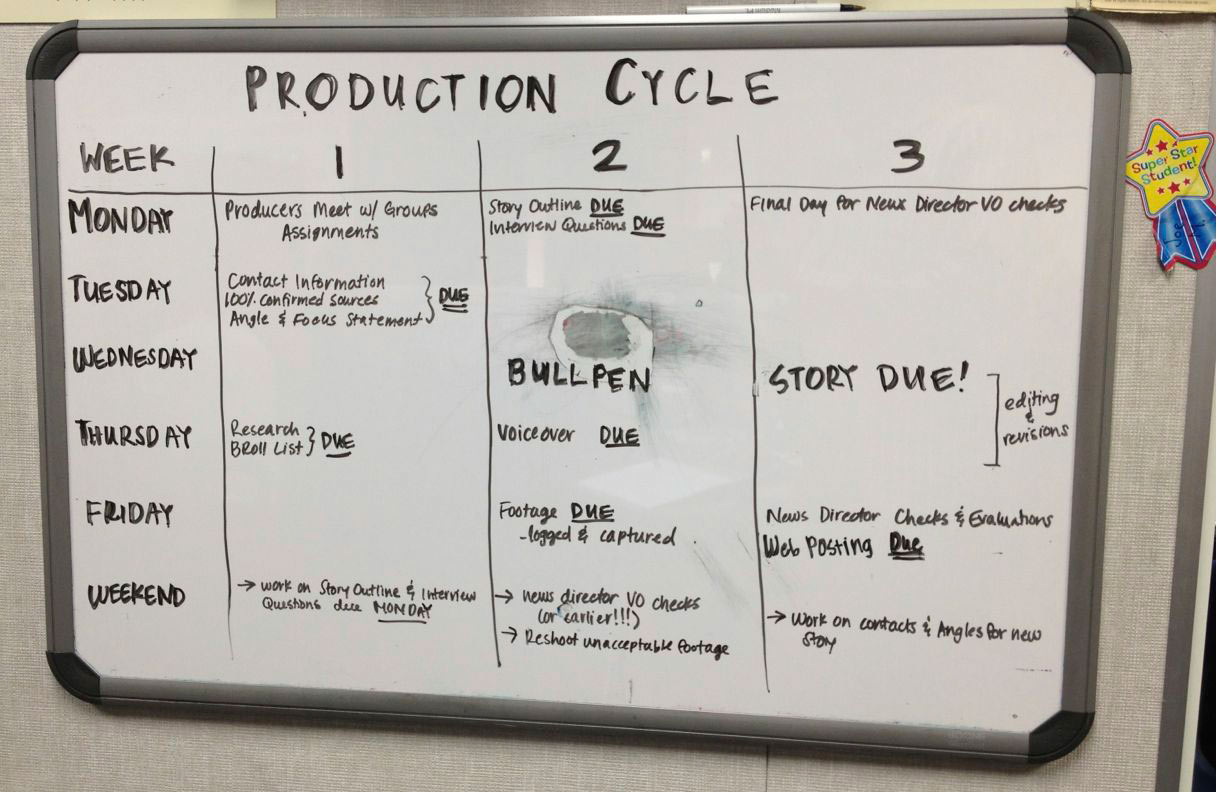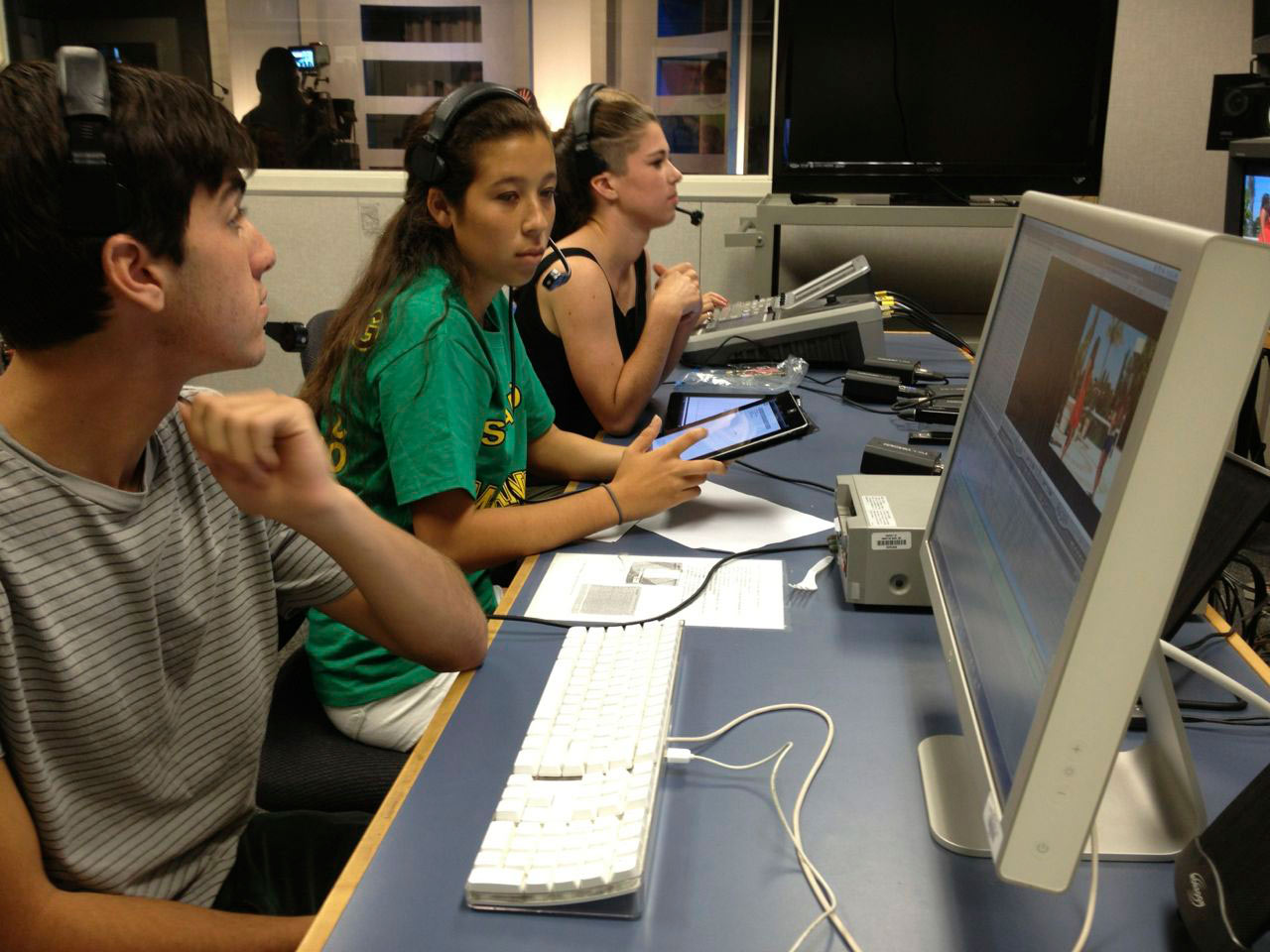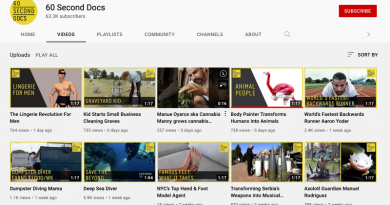Broadcast Deadlines and Schedules: A Student Producer’s Insights
By Allie Campbell
Planning deadlines is a numbers game. The Mustang Morning News broadcasts two shows a week, each with two packages on it. Our class has 24 students – minus our two news directors – that makes 22 – and then we divide by 2. That gives us 12 groups (one reporter and one photographer in each) making packages at one time. In our class a standard package takes about two to three weeks to complete. So if each group produces one package every three weeks, that gives us just enough packages to air each show (leaving us no room for error)

Because our class numbers change each year – our deadline system changes each year. In the past we utilized a somewhat random assignment system. Students would have one to three stories assigned to them at one time all with staggered deadlines. “Bullpens” (our name for our story conferences) would be held sporadically, and the stories assigned in the same fashion.
This system does have its advantages:
- When breaking and spot news comes up, it is easy to assign and produce in a timely manner, without effecting other stories.
- It is ideal for timeliness. Deadlines can be catered to each stories needs.
But there are (many) down sides:
- This can be a logistical nightmare – its hard to keep track of every story and make sure it goes through the necessary rounds of edits.
- The distribution of work becomes uneven – it’s hard to equally spread around the work. Some reporters fall through the cracks and never seem to have stories..and others are pulling their hair out trying to balance four.
- Grading/Evaluations – giving feedback is important. It’s how reporters grow, and how producers learn to be coaches and leaders. And for our advisor – it cuts down on grading discrepancies and confusion.
This year, our staff moved to a three week cycle. Everybody is assigned their stories at the same time and every story has the same due date. This also allows us to create smaller, intermediary deadlines that are easy for our producers to check. How we break it down:
Week 1: “pre production”
Contact information, research, b-roll lists, and interview questions are due and checked off
Week 2: “production”
Outlines and voice overs are due and checked. All footage is due by Friday.
Week 3: “Editing”
First cuts are due Wednesday, and final cuts Friday!
The advantages of this system:
- This makes the entire class run smoothly and in an orderly manner.
- It lets everyone have just ONE story at a time (unless last minute breaking news pops up, in which case some groups are asked to do more)
- It creates more of a team atmosphere – everyone’s doing the same thing, and nobody feels like there is preferential treatment given.
- By pairing this system with our new evaluation sheets (see image below) we are able to give constant feedback to our reporters

Some “Tricks of the Trade” for our three week cycle:
- We have our bullpen in the second week of each cycle, and assign the NEXT cycle’s stories in the third week of the previous cycle. That way the next assignment can mull around in the back of reporters’ heads for a while.
- Use Google Docs!!! It saves huge amounts of time and is incredibly efficient. Our producers can edit and view voiceovers online at home – and then in class can clarify any changes with the group in person.
The Forbidden “E” Word
Unfortunately, extensions are inevitable. But as a producer, it can be hard to determine the difference between when an extension is legitimate, and when a reporter has just dropped the ball. There is no way to completely eliminate extensions. But with the rigidity of our cycle system and its several deadlines – the amount we have given has been severely reduced this year. And if an extension really is merited – that doesn’t mean the deadlines for the next cycle disappear. (it’s harsh I know – but that’s life!)
Allie Campbell was a News Director for the Mustang Morning News for the 2012-13 school year. She plans to attend UC Berkeley in the Fall. You can follow her on Twitter @AllieCampbell2





